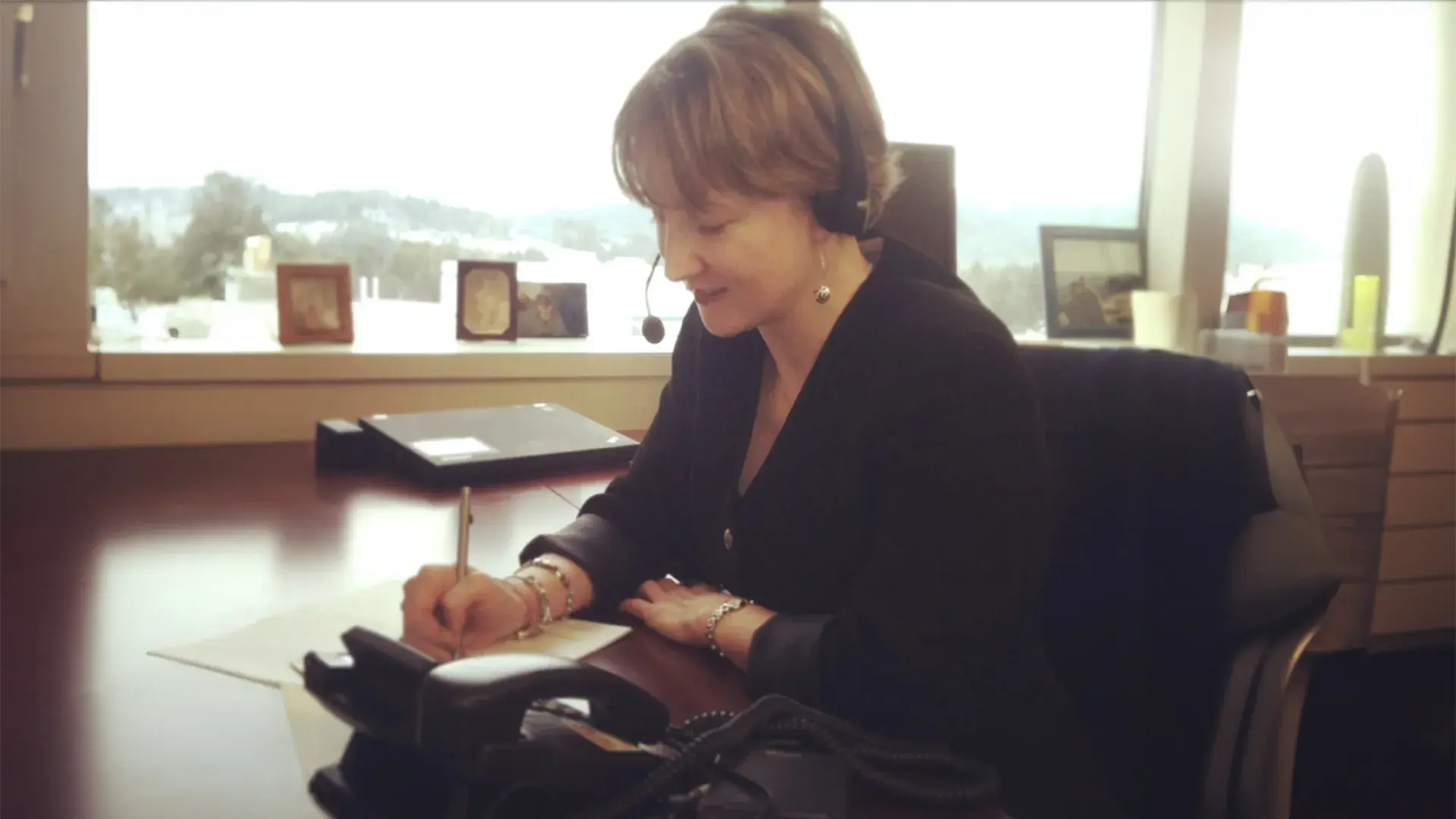
Research led by Kathy Lyons shows benefit of telephone-delivered rehabilitative care for breast cancer survivors
Breast cancer treatment not only can create impairments, like strength loss, pain or swelling, but can cause significant disruptions to one’s daily routines and activities. For a third of breast cancer survivors, it’s a struggle to get back into the routine of work, family life, and socialization.
Researcher Kathy Lyons is hoping to help change that.
She is lead author on a paper, published Friday in JAMA Network Open, that asks the question: Can telephone-based rehabilitation help breast cancer survivors get back to doing the things they love?
In a word, yes.
According to the study, “Telephone-Based Rehabilitation Intervention to Optimize Activity Participation After Breast Cancer,” this approach “resulted in significantly greater improvements in self-selected activity participation.”
“When breast cancer treatment ends, society thinks, ‘The worst is over. You're okay. ,’” said Lyons, a professor of occupational therapy at the MGH Institute of Health Professions and director of its Cancer Rehabilitation (CaRe) Lab. “And then women need to pick up their lives and try to get back to work, get back to parenting, get back to their social and leisure activities and taking care of their homes after an aggressive and disruptive treatment. Many struggle with this in silence.”
Lyons and her research team, which includes Stephen Wechsler, post-doctoral research fellow and colleague Colleen Muse in the CaRe Lab, focused on a psychosocial rehabilitative approach to help women get back to their preferred life and goals as soon as possible.
The team chose an intervention method that didn’t require survivors to travel back and forth to clinics, something that was easy to use, required little technological ability, and was ubiquitous.
The solution? The telephone, a device that would help the team meet women wherever they were, both geographically and in respect to their recovery, and whenever they were ready to talk.
Over the course of four and a half months during the pandemic, nearly 300 breast cancer survivors were called by licensed occupational therapists - referred to as “coaches” – experts who could help with goal setting and encouragement while providing an understanding and supportive ear.
“The coach moniker fits philosophically, because we’re asking, ‘Where do you want to focus your energy this week?’ or ‘What activities do you think will foster your health and well-being this week?’ So that really does fit with a coaching model because there was a guide and a structure to follow.
“We taught them strategies about activity adaptation, and environmental modification, and we worked with them to set goals each week,” said Lyons. “We started with various aspects of life such as care of the body, care of the family, doing things for fun, being social. We asked them, ‘How are these areas of your life going? And what would you like to make progress on?’”
During 45-minute sessions each week, with educational content from the American Cancer Society and National Cancer Institute, the coaches would help participants identify and set goals that would get them more engaged in activities that were meaningful to them and closer to their personal long-term recovery goals.
“We’d work on things like exercise to help with the fatigue, or helping do something meaningful,” said Lyons. “A survivor might say, ‘I haven't done anything fun,’ or ‘My house is chaotic now because everything went on hold when I went on treatment.’ We focused on getting people back, taking care of their homes, their feet, their meals, their families, their return to work. We helped set goals to help them get closer and closer to what they wanted.”
The key to success was the care and compassion demonstrated on the phone to each of the 284 participants.
“The rapport was high between the coaches and the women,” said Lyons. “People told us, ‘Thank you for following up with me. It's been great to talk to you’ and ‘It was really good just to hear that I'm not alone.”
The rehabilitation intervention was compared to a control condition where the coaches provided education regarding cancer survivorship and symptom management. While both groups made clinically meaningful improvement in quality of life and social participation, the rehabilitation intervention outperformed the control condition on helping performance and satisfaction with individually selected valued activities. Researchers weren’t surprised the telephone therapy by the coaches was so effective at getting breast cancer survivors back to doing what they wanted.
As for the contribution for the field, Lyons said this study demonstrates the value of not focusing solely on how the body recovers from cancer. There’s the psychosocial aspect that needs attention too.
“Our approach of being top down and focusing on meaningful activities is important to people. They like it and it does get them doing their valued activities more comfortably and more often. That's a really important part of occupational therapy - trying to help get people their lives back as opposed to just fixing impairments.”
Do you have a story the Office of Strategic Communications should know about? If so, let us know.
